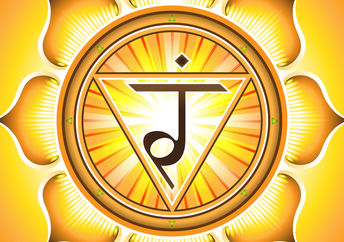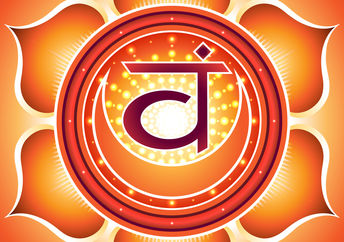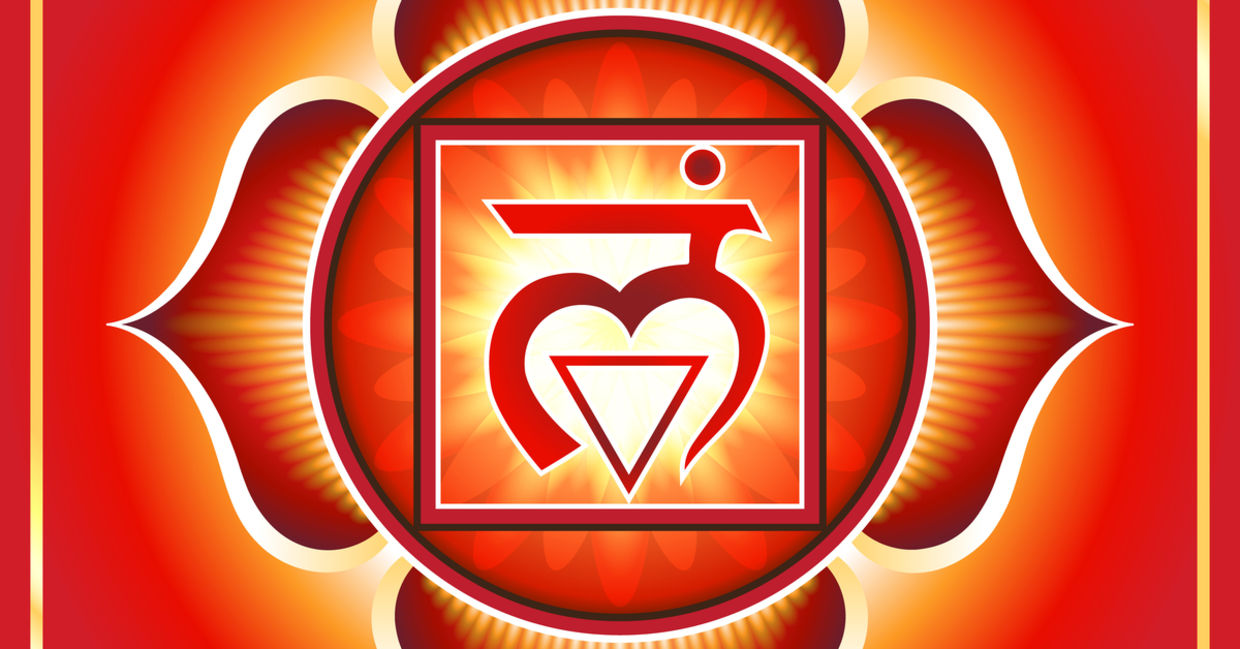The lower three Chakras could be described as the 'feeling' Chakras. They govern instinctive and emotional behaviour, including sexuality and sensuality. They are the 'body' Chakras, concerned with your wellbeing through digestion, sex, social interaction and by keeping your body going through the routines of work and daily life.
The Basic Needs in Life
As such, these Chakras are the ones that enable you to fulfil your basic needs. These Chakras deal with your unconscious drives and needs, revealing what is going on below the surface. If you do not pay attention to your body, you will soon start to suffer through lack of stimulation. Your lower Chakras remind you that you must always stay grounded, healthy and motivated - not an easy task in modern society, but one you can help by understanding and working with your lower Chakras.
The Benefits of the Lower Chakras
The lower Chakras have inspired many ways in which to describe your emotions and sensations that have now become common terms in everyday slang.
- The term 'gut feeling' describes the sensation in your Stomach Chakra of instinctive knowledge - when you trust your emotions to pick up cues that your conscious mind has missed.
- 'Keeping your feet firmly on the ground' is a saying for staying earthed. The Root Chakra symbolises the element of Earth and links to the ground.
- 'Base' feelings are those which are purely lustful with no emotional balance. This refers to the root Chakra as the base of sexual energy unbalanced from the sensuality of the sacral Chakra.
Individual Lower Chakras
Your three lower Chakras hold dominion over different areas of your life, health and personality. Be careful to keep them balanced.
Stomach Chakra
The stomach, (sometimes referred to as the 'solar plexus') Chakra is located below the breastbone and is known as the 'Chakra of fire'. It controls interaction with your environment, the digestive process and the emotions. In the body, it governs the pancreas, the stomach, the liver, the diaphragm, the adrenals and the nervous system.

Imbalance
Illnesses linked to imbalances of the stomach Chakra include diabetes, hypoglycemia, ulcers, gallstones and mental and and nervous exhaustion. This Chakra teaches you that you must have a willpower of fire.
The Chakra is your link to your environment and you may find that there are moments when you feel out of control because of the influences that surround you. If this is not treated then your stomach Chakra may move out of balance and this can lead to conditions such as depression. In summary, be careful what you put into your body to 'burn' in the fires of digestion.
Sacral Chakra

Your Sacral Chakra is located just below your navel and is the 'Chakra of water'. It controls creativity (including procreation), nurturing, sexuality and sensuality, and change. In the body it governs taste, ovaries and testicles, spinal column, womb, bladder and kidneys.
Illness linked to imbalances include impotence, bladder and uterine disorders, frigidity and sexual dysfunction.
Control the Flow
As the 'Chakra of water', it's important to keep sufficient water flowing through your system. This Chakra suffers if insufficient fluids or excessive alcohol is consumed.
The sacral Chakra can also help you to improve the way you interact with people. Simply focus on balancing the Chakra to remove the barriers between you and others.
Root Chakra
Your root Chakra is located at the base of your spine and is the 'Chakra of earth'. It controls instinct, survival, pleasure and base sexuality. In the body, it governs smell, the gonads and adrenal glands, the excretory system and all that is solid, such as bones, teeth, nails and hair.

Chakra Illness
Illnesses linked to imbalances of the root Chakra include anorexia, constant illness through exhaustion, low blood pressure, arthritis, constipation, haemorrhoids and obesity.
Regular exercise and avoiding over-indulgence help keep this Chakra balanced, which is very important as, if this Chakra is not sufficiently stimulated, it can generate inertia in your life. If it's over-stimulated, it will swing to the other extreme and tend to result in exhaustion, being run-down and, consequently, more frequent illness.